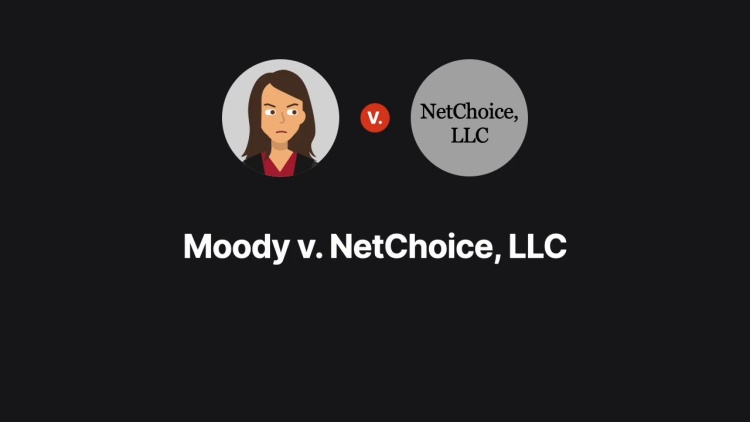Moody v. NetChoice, LLC
United States Supreme Court
144 S.Ct. 2383 (2024)
- Written by Angela Patrick, JD
Facts
In 2021, Florida and Texas (defendants) passed laws limiting social-media platforms’ ability to filter, prioritize, label, or otherwise moderate the content of third-party posts. If a platform moderated content, the platform needed to provide an individualized explanation of its reasoning. NetChoice, LLC, and other trade associations representing social-media platforms, including Facebook and YouTube (collectively, NetChoice) (plaintiffs) filed lawsuits in Florida (Moody v. NetChoice, LLC) and Texas (NetChoice, LLC v. Paxton), alleging that the laws were facial First Amendment violations, meaning they were unconstitutional as written. NetChoice argued that the platforms exercised editorial control over the presentation of third-party posts to curate the platforms’ own expressive messages. For example, Facebook banned posts it deemed as hate speech or misinformation from its news feed as part of its own overall message. NetChoice claimed the laws would force Facebook to show currently deprioritized or banned content, giving the government unconstitutional control over Facebook’s own message. The states argued the laws furthered their interests in a balanced marketplace of voices by limiting censorship of voices in social-media forums. In both lawsuits, the federal district courts considered the laws’ application to some well-known social-media products, found that NetChoice was likely to succeed on its claims, and issued preliminary injunctions preventing enforcement of both laws. The Eleventh Circuit upheld the Florida injunction. The Fifth Circuit vacated the Texas injunction, finding the Texas law did not restrict speech and, even if it did, the state’s interest in a balanced marketplace of voices justified the restriction. The United States Supreme Court granted certiorari in both cases.
Rule of Law
Issue
Holding and Reasoning (Kagan, J.)
Concurrence (Barrett, J.)
Concurrence (Jackson, J.)
Concurrence (Thomas, J.)
Concurrence (Alito, J.)
What to do next…
Here's why 907,000 law students have relied on our case briefs:
- Written by law professors and practitioners, not other law students. 47,100 briefs, keyed to 996 casebooks. Top-notch customer support.
- The right amount of information, includes the facts, issues, rule of law, holding and reasoning, and any concurrences and dissents.
- Access in your classes, works on your mobile and tablet. Massive library of related video lessons and high quality multiple-choice questions.
- Easy to use, uniform format for every case brief. Written in plain English, not in legalese. Our briefs summarize and simplify; they don’t just repeat the court’s language.





